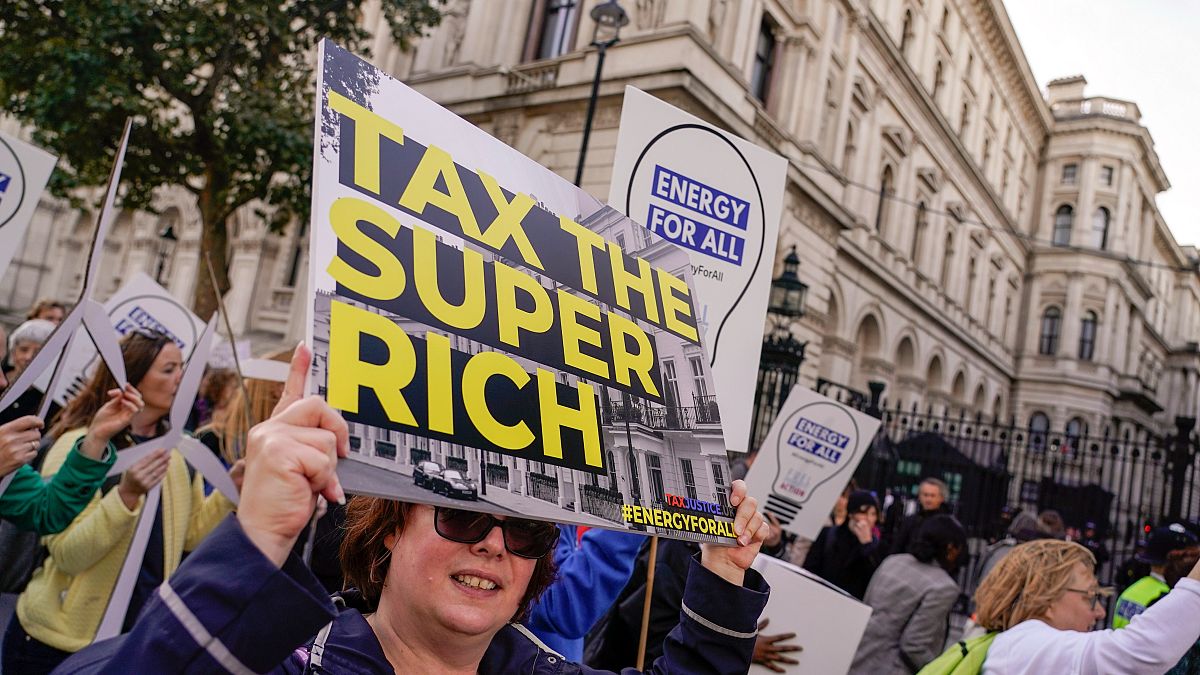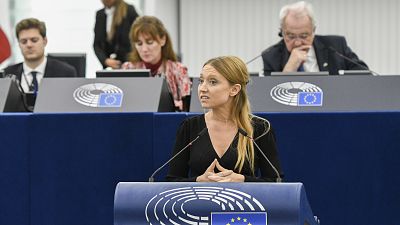Officials from the twenty biggest global economies are today discussing plans for a levy on the world’s 3,000 richest people.
Finance ministers are gathering today (25 July) in Rio de Janeiro, Brazil, to discuss controversial plans to raise as much as $250 billion (€230 billion) from a new tax on billionaires.
Campaigners say that will be a big step forward for resolving inequality – even if the group of twenty major economies (G-20) may be blocked by the US from endorsing the levy on extreme wealth.
The new tax was proposed by the EU Tax Observatory last year, as a way to resolve loopholes in the current taxation system – and last month, its researchers were asked by the Brazilian G-20 presidency to set out their plans in more detail.
“A progressive tax system is really a pillar of our democratic societies,” Gabriel Zucman, Director of the Observatory, told reporters when presenting his findings.
“The super-rich pay proportionately less in taxes than other socioeconomic groups,” Zucman added – and his study cites the case of the Netherlands, where billionaires pay under 20%, compared to a typical worker whose tax bill is closer to 50%.
Zucman argues that a 2% levy on wealth would ensure this segment of the economy pays its fair share – and that international coordination would stop the world’s elite simply moving abroad to escape it.
The plan doesn't breach national tax sovereignty, Zucman added. Each country decides whether to participate – but can also top up rates to account for wealth stashed in jurisdictions who don't.
In global terms, the $200-250bn it would raise from 3,000 or so taxpayers isn’t huge – swamped by the $4.4tn taken in federal taxes last year by the US alone.
But Zucman argues the new revenue source will help fund vital issues like health, education and climate change – and he has plenty of supporters.
“We’ve seen a level of inequality growing,” said Chiara Putaturo, tax policy advisor at Oxfam EU, citing figures showing the richest 1% of the world amassed $42 trillion in new wealth over the past decade. “This is connected to the unfair tax system.”
She’s encouraged by progress at the G-20 – even though the meeting’s formal conclusions may do little more than note the existence of Zucman’s report.
“Recognition that there is this kind of problem is already a good step,” Putaturo said, adding that that the tax itself “requires a bit more time to be designed and agreed.”
Though the plan was supported by ministers in major countries such as France, Germany and Spain, US Treasury Secretary Janet Yellen poured cold water on the idea back in May.
But earlier this year the Treasury also proposed a 25% minimum tax on the extremely wealthy, which Zucman says matches his own plans.
Putaturo argues Yellen’s public opposition could merely be down to the “sensitive political moment” as the US gears up for elections.
Proponents of the wealth tax are heartened by a global agreement to impose a minimum tax level on corporations, which they see as proof the concept can work – and it’s gaining political traction.
In remarks to reporters this week, after being elected to chair the European Parliament’s tax subcommittee, MEP Pasquale Tridico (Italy/Left) praised Zucman’s work.
“Who works, is not rich ... most of the inequality within our economies is not determined by labour,” he said, citing the work of Thomas Piketty, a fellow economist who also proposed a wealth tax.
“Europe, and the subcommittee as well, can have a role in understanding these dynamics and to propose something consistent with the idea of Zucman and Piketty,” Tridico said.
A petition for the EU to introduce a new wealth tax – backed by Piketty and by Aurore Lalucq, who now chairs the European Parliament’s economics committee – has gained a quarter of a million signatures, with responses particularly strong in Germany, France, Belgium and Denmark.















